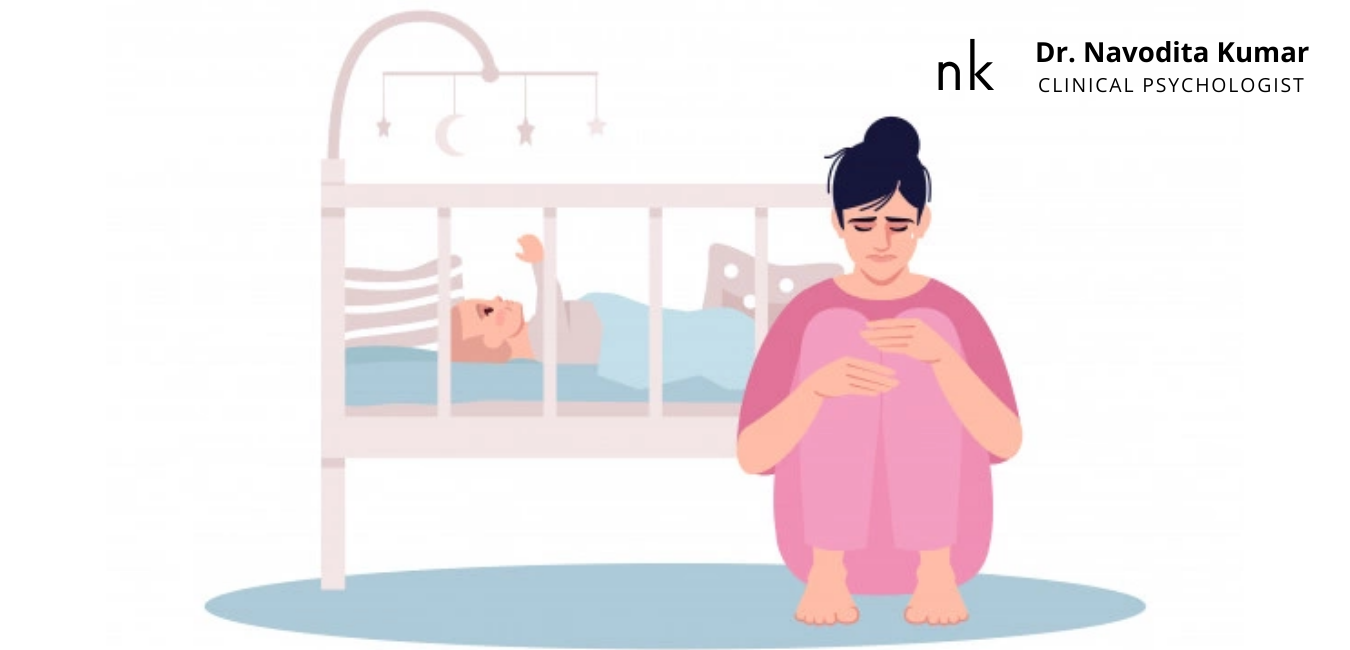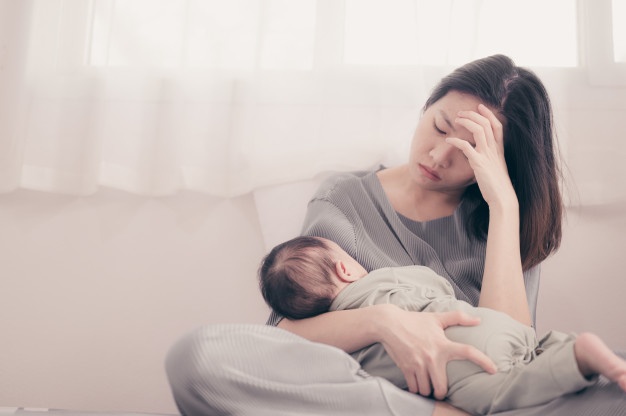
For a woman, the birth of her child is the most important and valuable phase of her life. But, this is so true that giving birth is one of the emotional roller coaster rides. Not just before the birth or during delivery but also, after the birth of her child which is also called the Postnatal or Postpartum period is really a difficult journey or say an emotional tornado for a woman who is a newly born mother.
But do you know, a lot of things change from body to mood and from hormonal balance to hormonal imbalance. Sometimes, these changes come with a lot of mood swings. You may feel sadness, stress, anxiety, and a feeling of separation after the birth of your newborn. New moms not only struggle with these changes but also go through a lot of thinking to deal with such sudden new experience and responsibilities too. If a new mom struggles beyond the two-week mile, she is going through postpartum depression.

What is postpartum depression or prenatal depression?
Postpartum depression, or PPD, is a form of clinical depression that begins after the birth of a baby. Common symptoms include:
- loss of appetite
- excessive crying or fatigue
- difficulty bonding with your baby
- restlessness and insomnia
- anxiety and panic attacks
- feeling intensely overwhelmed, angry, hopeless, or shameful.
The period becomes really a vulnerable time as a lot of changes happen all of a sudden. It can begin as soon as you give birth or sometimes the postpartum period generally includes the first 4–6 weeks after birth, and many cases of PPD begin during that time. But, yes PPD can also develop during pregnancy and up to 1 year after giving birth, so don’t discount your feelings if they’re happening outside of the typical postpartum period.
Risk factors include during the time of PPD
- a history of depression or other mental illness.
- Breastfeeding difficulties.
- a complicated pregnancy or delivery.
- a lack of support from your partner or family members and friends
- other major life changes occurring during the postpartum period, like a move or loss of employment
- a history of PPD after a previous pregnancy.
Don’t worry if you have any of these risk factors. With the right treatment and right therapy, you can easily get out of this messy situation and will start feeling better and normal.
If you’re not feeling better 2 weeks postpartum, get in touch with your doctor. While you’ll be screened for PPD at your 6-week postpartum appointment, you don’t have to wait that long. Doing so can make it take longer for your PPD to get better.
When you do ask for help, be as honest as possible. We know it’s difficult to talk about the negative emotions associated with new parenthood, and it can be scary to reveal just how much you’re struggling. Sometimes, you don’t want to take that step to talk about your sufferings. However, the more open you are about your PPD, the better — and faster — your provider will be able to help you.

How do I get out of this situation and seek relief?
There are several options for the treatment of PPD. You can always go for more than one strategy to get out of this period and seek relief with proper recovery.
- Antidepressants:- Your provider may prescribe a selective serotonin reuptake inhibitor (SSRI) to treat your depression. There are several SSRIs available. Your doctor will work with you to find one that best treats your symptoms with the fewest side effects. Many SSRIs are compatible with breastfeeding, but make sure your provider knows if you’re nursing so they can choose the appropriate medication and dosage. You can tell them all your routines so that nothing can affect you more in this recovery journey.
- Counseling:- Cognitive-behavioral therapy (CBT) is a frontline strategy for treating depression, including symptoms of PPD. And, it can help you like magic. The recovery will take time but ultimately, it’s going to be alright.
- Group therapy:- It may be helpful for you to share your experiences with other parents who have had PPD. Finding a support group, either in person or online, can be a valuable lifeline. Sometimes opening up can solve a lot of problems that look terrible at some point. Listening to the people, especially those who have gone through the same situation will really encourage you to think about your improvement.
Depression affects your whole body — not just your brain — and it takes time to feel like yourself again. You can recover faster by getting help for your PPD as soon as possible and feel in the same manner as you were feeling earlier.
We know and understand, it’s hard to reach out when you’re struggling, but try to communicate with your partner, a trusted family member or friend, or your healthcare provider if you think your depression is affecting your quality of life or your ability to care for your baby. The sooner you get help, the sooner you’ll feel better, and the sooner you can enjoy your life and the journey of motherhood.
We wish you all the luck for your speedy recovery and want to tell you that we are always there for you to help and support you in any manner.


